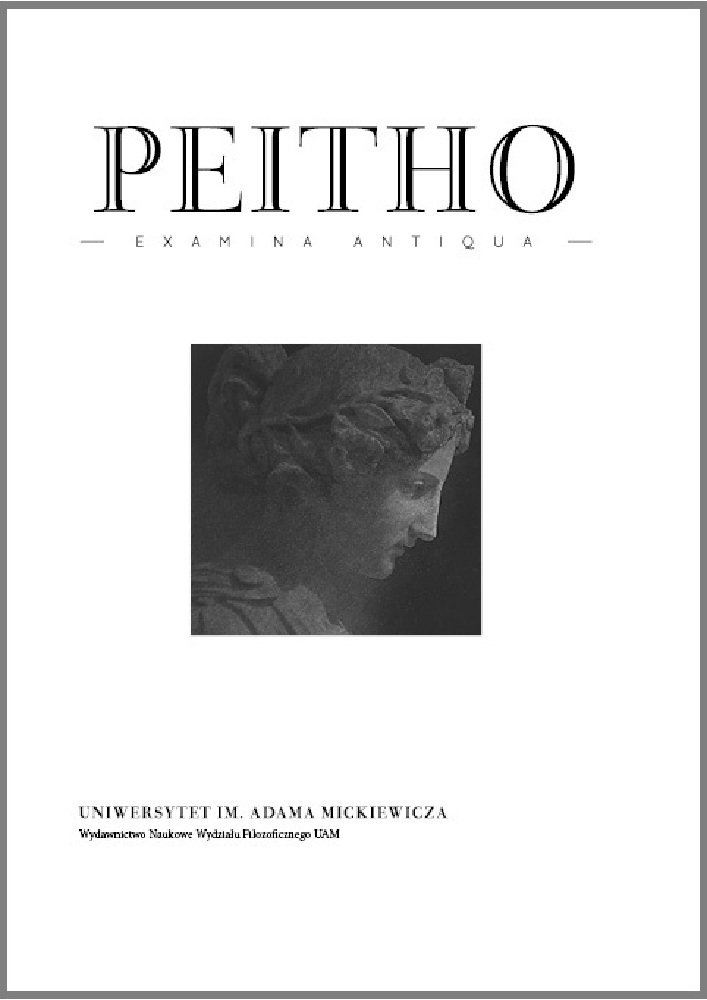Abstract
This study examines the way in which the Neoplatonic philosopher Proclus treats an episode of the dialectic communication between Socrates and Alcibiades in the Platonic dialogue Alcibiades I. More specifically, it refers to how the characteristics and the choices of two different types of lovers – the divinely inspired one and the vulgar one – are displayed in the aforementioned text. The characterization ‘divinely inspired lover’ befits a person who communicates in a pure way with his beloved one and attempts to teach the latter the objective values of the intellect. By contrast, the characterization of the ‘vulgar lover’ befits that individual that approaches another individual exclusively on the basis of his external beauty. The first type of lover is presented within the realms of the permanently qualitative, while the second as someone who satisfies solemnly his subjectivity and his instincts. Furthermore, it is interesting to note that Proclus argues that Socrates, whom he considers to represent the very definition of a divinely inspired lover, is inspired by divine powers and attempts to act towards to his fellows – in this instance to Alcibiades – in the way through which the divine providence is revealed.References
Bastid, P., 1969, Proclus et le crépuscule de la pensée grecque, Paris.
Moutsopoulos, E., 2003, Structure, présence et fonctions du kairos chez Proclus, Athènes.
Segonds, A.P., 1985, Alcibiades I: Sur le premier Alcibiade de Platon, vol. I, Paris.
Trouillard, J., 1972, L’Un et l’âme selon Proclos, Paris.
License
Peitho provides immediate open access to its content on the principle that making research freely available to the public supports a greater global exchange of knowledge.
